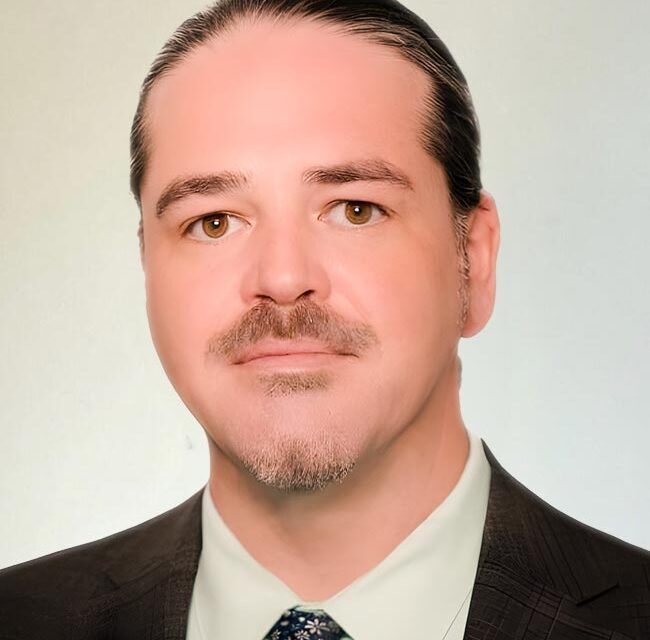Michael Bradley is a highly respected attorney based in Covington, Louisiana, known for his unwavering dedication to justice and client advocacy. With over 17 years of legal experience, he has built a reputation for delivering strategic and results-driven representation across multiple practice areas, including criminal defense, family law, personal injury, maritime law, and parole advocacy. Bradley began his legal career as a public defender, quickly distinguishing himself by achieving Louisiana’s highest plea-to-dismissal ratio. His ability to navigate complex legal challenges and fight for fair outcomes set the foundation for his transition into private practice.
Over the years, he has grown his firm into a trusted legal resource, offering personalized representation tailored to each client’s unique needs. His ability to handle high-stakes litigation, negotiate favorable settlements, and defend clients in challenging cases has solidified his standing in the legal community. Beyond the courtroom, Bradley has played a key role in improving the legal system in St. Tammany Parish. As co-founder and chair of the Criminal Division of the 22nd Judicial District Bar Association, he has worked to enhance efficiency and fairness in local legal proceedings. Recognized as one of the top 100 trial attorneys in the U.S. and voted St. Tammany West’s Favorite Attorney, Bradley continues to set the standard for legal excellence in Louisiana.
How did your early career as a public defender shape how you approach private practice cases today?
My time as a public defender was invaluable. I handled high caseloads, defended clients from all walks of life, and learned to think quickly under pressure. The experience taught me the importance of thorough case preparation, strategic negotiation, and strong advocacy. Most importantly, it reinforced my commitment to justice, ensuring that every client, regardless of background, receives fair representation. That foundation continues to shape my private practice, where I take a personalized approach, ensuring each client’s case is handled with the same level of dedication I gave when fighting for indigent clients in the public defender’s office.
You achieved Louisiana’s highest plea-to-dismissal ratio as a public defender. What key strategies did you use to secure favorable outcomes for your clients?
Achieving that record required a deep understanding of the law, strong negotiation skills, and an ability to spot weaknesses in the prosecution’s case. I meticulously analyzed evidence, challenged improper procedures, and leveraged legal technicalities in favor of my clients. I also built relationships within the legal community, including with prosecutors, which helped facilitate productive discussions. Most importantly, I took the time to listen to my clients, ensuring their rights and interests were prioritized. That approach remains central to my practice today – every case is unique, and I fight to secure the best possible outcome for each client.
Your firm now handles criminal defense, family law, personal injury, maritime law, and parole advocacy. What challenges come with practicing in such diverse areas, and how do you navigate them?
Each area of law presents unique challenges but intersects more than people realize. Criminal charges often affect family law matters, personal injury cases sometimes involve criminal liability, and maritime law requires understanding personal injury claims at sea. The key to managing diverse cases is staying ahead of legal developments and maintaining a strong network of professionals, from expert witnesses to fellow attorneys. My team and I dedicate ourselves to continuous learning, ensuring that we provide our clients with the highest level of representation, no matter the legal issue.
Given your experience in parole advocacy, what are the most pressing issues in Louisiana’s parole system, and what reforms would you like to see?
Louisiana’s parole system needs greater transparency and fairness. Many deserving individuals face unnecessary hurdles in securing release, even when they’ve demonstrated rehabilitation. The system is often inconsistent, with parole board decisions sometimes appearing arbitrary. I advocate for more precise guidelines, better access to legal representation for parole applicants, and a greater emphasis on rehabilitation programs that genuinely prepare individuals for reentry. Justice should not end at sentencing; true reform requires ensuring people have a fair chance to reintegrate successfully into society.
Louisiana has a unique relationship with maritime law due to its coastal location. What are some standard legal challenges clients face in this area, and how do you address them?
Maritime law is highly complex, involving federal, state, and international regulations. Many workers and businesses don’t fully understand their rights under the Jones Act or general maritime law. Common issues include vessel workplace injuries, contract disputes, and jurisdictional challenges. I ensure my clients receive fair compensation for injuries, navigate insurance complications, and fight against corporate negligence. Maritime cases require specialized knowledge, and I take pride in helping workers and businesses navigate these legal waters to protect their interests.
As the co-founder and chair of the Criminal Division of the 22nd Judicial District Bar Association, what initiatives have you championed to improve the efficiency and fairness of the legal system in St. Tammany Parish?
One of my primary goals has been streamlining case processing to reduce unnecessary delays. Backlogs hurt defendants and victims, so I’ve worked with fellow attorneys and judges to push for procedural improvements. We’ve advocated for better case management systems, increased use of diversion programs, and more efficient docket scheduling. Additionally, I’ve supported efforts to expand access to public defenders and ensure fair plea negotiations. A more efficient justice system benefits everyone, reducing costs and ensuring timely resolution of cases while upholding fairness.
Criminal defense is often misunderstood. What misconceptions do people have about defense attorneys, and how do you balance your duty to your clients with ethical considerations?
A common misconception is that defense attorneys only represent “guilty” clients. In reality, our job is to ensure that every person receives a fair trial and that the prosecution proves its case beyond a reasonable doubt. Many cases involve wrongful accusations, overzealous charges, or legal technicalities that impact a person’s rights. My role is to uphold justice, not to excuse criminal behavior. The ethical balance lies in following due process and protecting clients’ rights while respecting the legal system’s integrity. Justice demands that everyone has a strong advocate in their corner.
You’ve been recognized among the top 100 trial attorneys in the U.S. and voted Northshore’s Favorite Attorney. What do you believe sets you apart from other attorneys in Louisiana?
My success comes from legal skill, dedication, and a client-first approach. I treat every case with the seriousness it deserves, regardless of its size or complexity. Clients trust me because I communicate openly, fight aggressively for their rights, and care about their outcomes. Additionally, my experience as a public defender and private attorney has given me unique insights into the legal system. I don’t just see cases, I see people, and that human-centered approach makes all the difference.
Have any recent legal developments or legislative changes in Louisiana that you believe have significantly impacted your practice or the rights of your clients?
Louisiana has seen some notable legal changes, particularly in sentencing reform and criminal justice policies. Recent efforts to reduce excessive sentencing and expand parole opportunities are positive steps, but there’s still work to be done. Additionally, changes in personal injury laws, particularly regarding insurance claims, have affected how clients pursue compensation. As laws evolve, attorneys must avoid these changes to represent their clients effectively. I constantly analyze new legislation to ensure my clients receive the best legal guidance possible.
What advice would you give young attorneys looking to build a career in law, particularly in Louisiana?
My biggest advice is to develop a strong legal research and advocacy foundation. Law school teaches theory, but real success comes from experience, whether it’s through internships, clerkships, or public service work. I also recommend building a network of mentors and colleagues. The Louisiana legal community is tight-knit, and relationships matter. Finally, never compromise on integrity. Clients and courts respect attorneys who are honest, prepared, and dedicated. Whether in a courtroom or negotiating behind closed doors, your reputation will follow you, so make sure it’s built on hard work and ethical practice.




